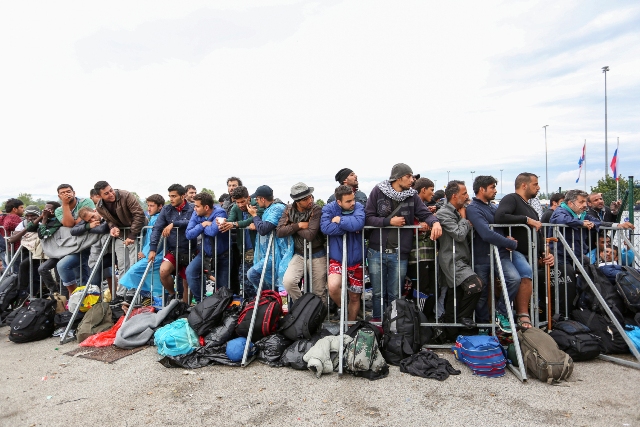 The Commonwealth needs to add its efforts, voice and prestige to the global effort to prioritise the restoration of peace in Syria [iStock]
The Commonwealth needs to add its efforts, voice and prestige to the global effort to prioritise the restoration of peace in Syria [iStock]
This is an extract from Understanding the War in Syria and the Roles of External Players: Way Out of the Quagmire? by Ranjit Gupta.
Those advocating regime change need to ponder seriously over the fact that the internal situation today in both Iraq and Libya is far worse than it was when Saddam and Gaddhafi were in power.
Intrusive military interventions by foreign countries in Libya and Iraq are not examples to be emulated, but shunned. Indeed, externally encouraged efforts towards regime change in Arab countries must stop forthwith.
In any case, with Russian and Iranian intervention in a big way in Syria there is no longer any possibility of regime change through such means.
Given the current ground realities in Syria and its diverse ethnic and sectarian make-up, regime change in Syria could lead to a much worse outcome than in Iraq and Libya, even the break-up of the country, with deeply destabilizing consequences for the Levant as a whole.
Regime change is not in the long-term interests of either Syria or the region, or, indeed, of countries that have vital stakes in the stability of West Asia as a whole.
As a first step the Western world would do well to stop its own and its regional allies’ supply of arms to the rebels and to stop the ingress of foreign fighters into Syria. Only when this starts happening transparently could Russia and Iran be persuaded to stop supplying arms to the regime.
However, for the immediate short term defeating the Islamic State must be given higher priority than replacing Assad. The war against the Islamic State needs to be stepped up considerably through increased airstrikes—in the aftermath of the terror strikes in Paris this is very likely to happen. It would be desirable to deploy limited numbers of Western Special Forces from the US and France. A concerted exploration of possibilities of deployment of Arab Sunni forces on the ground against the Islamic State must start as early as possible.
Saudi Arabia and Turkey continue to insist that Assad’s stepping down is an absolutely necessary precondition for any forward movement towards a solution; however, this is simply not going to happen. What could not be achieved on the battlefield is hardly likely to be conceded in a conference room let alone before the conference. On the other hand, the primary objective of Assad’s supporters is not an outright Assad victory but to ensure that the war can be ended through a smooth political transition process during which they believe Assad needs to remain in power at least until this transition can be completed satisfactorily. Negotiations between the main relevant parties are the only way forward. The objective of negotiations should be elections under international supervision to decide on a future regime for Syria. This is a far more realistic and pragmatic approach that Western countries should agree to and cajole their regional allies to do so also. The terrorist attacks in Paris may help to bring this about but so far President Hollande’s whirlwind diplomacy has not yielded any meaningful results.
The Geneva Process is effectively dead; possibilities of bringing different contending forces fighting against each other in Syria face to face in a conference room are virtually non-existent. Talks in Vienna, which for the first time included Iran, on 30 October and 14 November represented a step forward. An agreement between nine countries—the P5, Iran, Qatar, Saudi Arabia and Turkey—whose actions and policies have shaped what has been happening in Syria for the past four and a half years is the indispensable fulcrum of success of any negotiations. Therefore, reducing the number of participants to nine in any negotiations may be a better option to move forward. Arriving at an agreement between a smaller number of participants is obviously easier than among a larger number of participants. This would be an expanded version of the format that delivered the nuclear deal with Iran. It may be helpful to have such talks conducted initially in secret by specially empowered Sherpas of the nine governments. If they can agree on any plan there can be a solution, if not the war will continue. Discussions could be more frank in the absence of any Syrian representation, which in any case becomes redundant since the final outcome of the war in Syria is not in Assad’s hands or in the hands of his Syrian opponents. These nine countries need to agree on an action plan.
In the meantime it is important to develop growing momentum of world opinion against the Islamic State on the one hand and the continuation of the war in Syria on the other.



